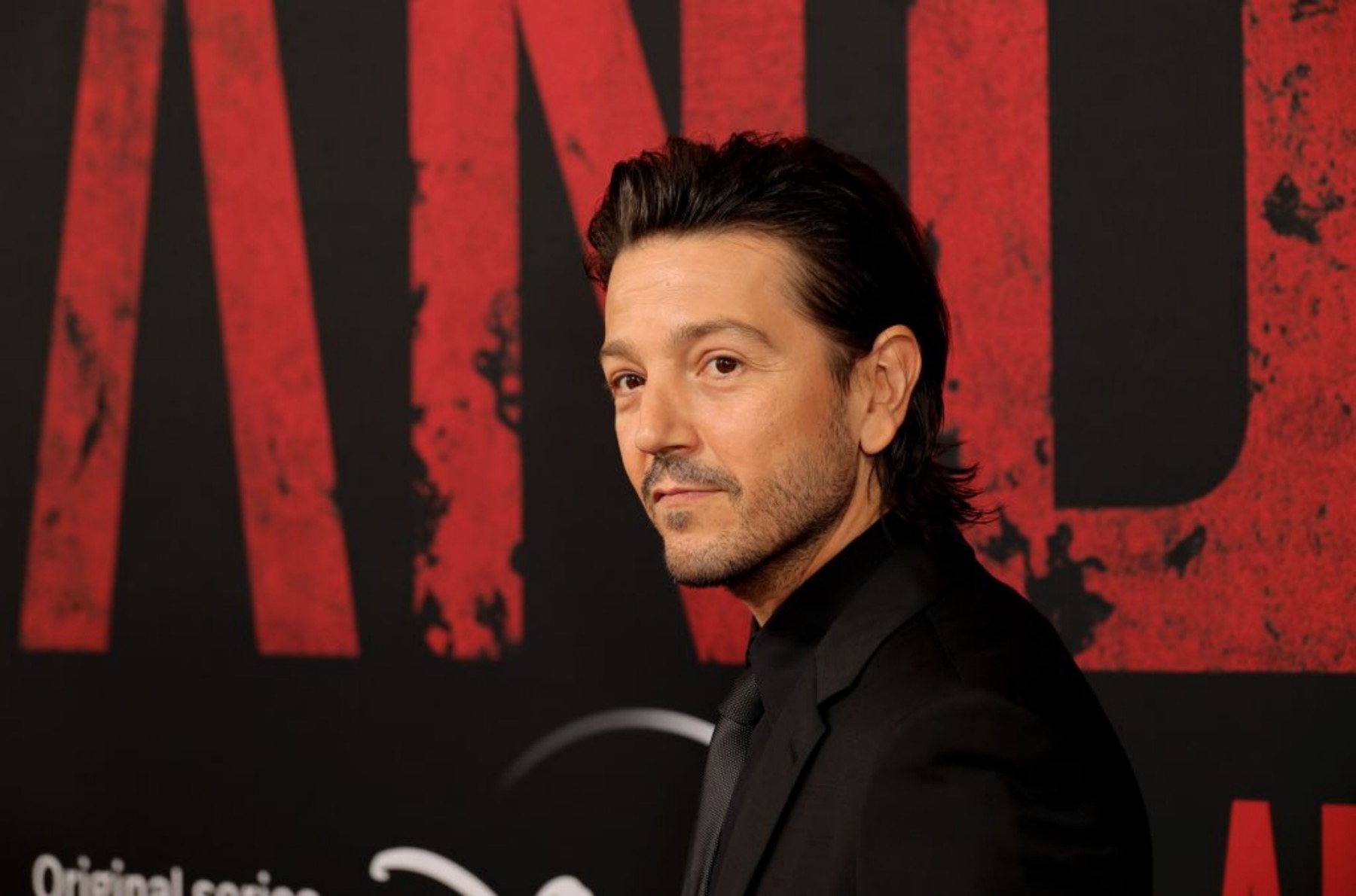
- Interviews
Diego Luna Returns As Andor to the “Star Wars” Universe
With his Golden Globe-nominated film Y tu mamá también (2001) from Alfonso Cuarón, Diego Luna became an ambassador of Mexican cinema, appealing to both critics and world audiences.
And with his debut appearance as Cassian Andor in Rogue One: A Star Wars Story (2016), the role reinforced his reputation as an artist always in search of challenges, restless in his pursuit of artistic fulfillment.
Luna explained that year, 2016, “Cinema is that great mirror that through fantasy, leads you to introspection. Rogue One is that. I think the concept of rebellion in Star Wars is an essential idea to move forward. Rebellion is not accepting your reality as the only option but wanting to build a new one. There is always something to improve and something to do.”
The actor, now 46, did not imagine that five years later, Disney Studios would call him back to tell in two planned seasons the origin story of Andor and how he became a universal liberator.
For Andor, Luna was also invited to executive produce for Disney Plus.
Andor writer/director Tony Gilroy said at the Star Wars: Celebration convention in May, “Diego is the best. We met when we did Rogue One as I was a co-writer on that movie. For a production like Andor, you need an actor who is a gentleman in real life, with a rebellious spirit, and who is also a great actor. I wouldn’t have done the series without him.”
Andor opened with three episodes this September, with a total of twelve episodes in the first season. The new series narrates the five years leading up to the events of Rogue One: A Star Wars Story.
Luna has a plan when it comes to what the public expects from a hero ready to lay down his life for the galaxy. The actor, along with Gilroy, teamed up to turn the Star Wars experience into a story with elements of a political thriller, full of intrigues, and with a government apparatus that alienates human feeling so much that it has become a machine that devours those who claim to care and rips out the souls of those who serve it.
“You have to walk into them like you belong to them,” Andor explained, in one of the opening episodes, to a recruiter from the fledgling rebellion. “They’re so proud of themselves, they don’t even care to look to the side. They are so fat and satisfied that they can’t imagine someone like me sneaking into their houses, walking their steps, spitting on their food, and being part of their team.”
Unlike other Lucasfilm series such as Obi-Wan Kenobi and the Golden Globe-nominated The Mandalorian, which aim for a family audience, Andor aims its artillery at more adult audiences, showing that even in the land of droids and princesses, things can go wrong.
Luna said about Andor, who is a fugitive from the law, not for the most glorious reasons that we could suppose when the series starts, “I think it is very important to tell this story. Andor starts the first episode very far from the character we met in Rogue One and what it is about is drawing a line towards the maximum sacrifice for the cause.”
Luna, talking at the series’ premiere in Hollywood, in front of dozens of artists and technicians who are part of the project, said, “Being an executive producer gave me the opportunity to be involved in the day-to-day of what we wanted to achieve with Andor. In Rogue One, I walked into a moving train, and now, I knew the decisions behind everything. This experience was one of the richest parts of making the series, having Gilroy give a lecture on what it means to be a leader.”
Like Andor, Luna is passionate about serving the community. When he was just a teenager, Luna ran away from his school to help send food to the communities in Chiapas that took arms with the Zapatista army in 1994. After the earthquake of September 11, 2017, he immediately stopped his activities in Hollywood and went to Mexico City to help. These are examples of the actor’s generosity.
Every year Luna and his best friend, Golden Globe winner Gael García Bernal, hold the Ambulante tour, a documentary festival that goes from city to city in Mexico, seeking to be the window of communication and education that more established media, such as television, do not dare to approach.
Judging by the reaction of those who attended the El Capitan Theatre premiere of Andor, the Star Wars universe has found its adult version.
Translated by Mario Amaya